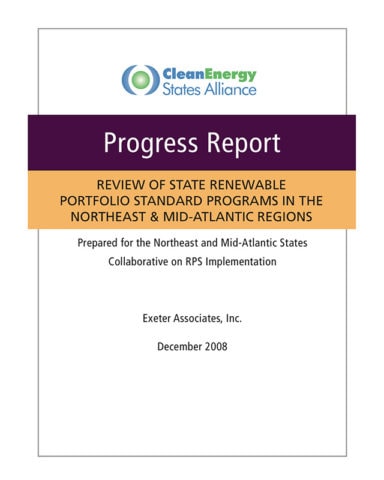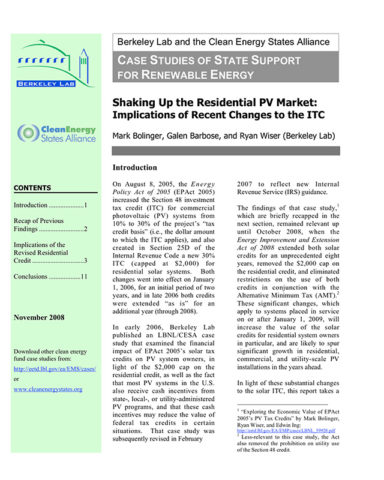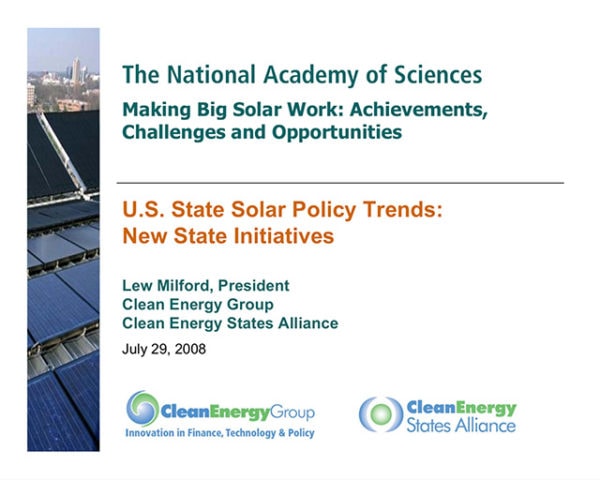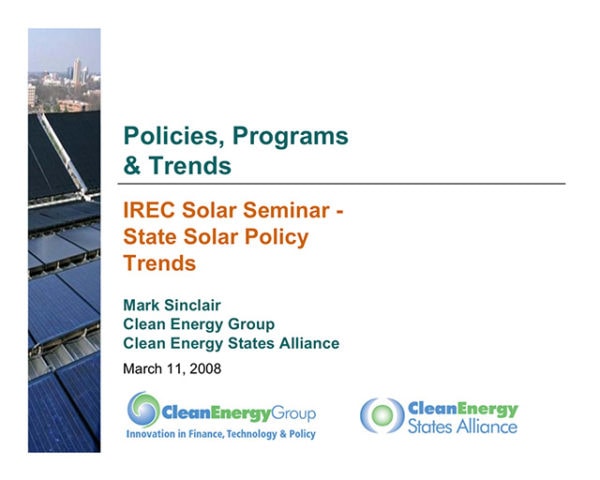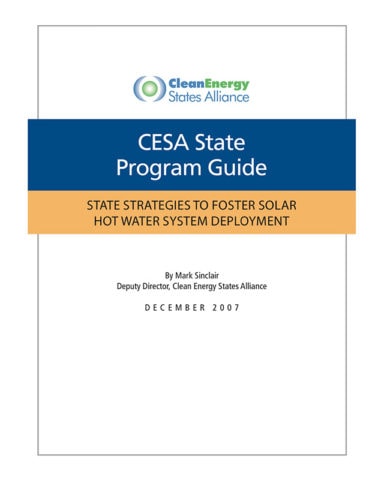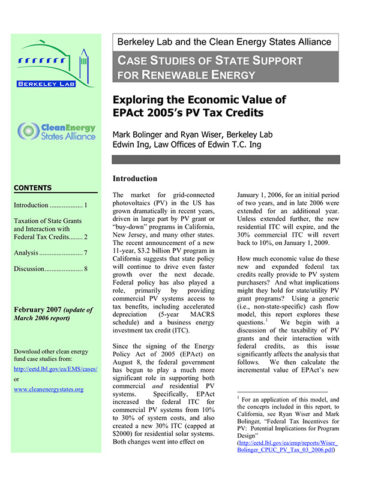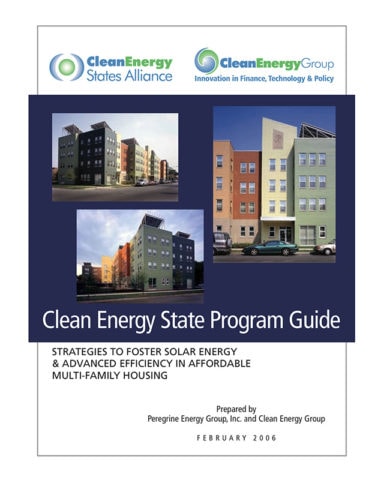Resource Archive - Finance
SEARCH RESOURCES
You can also search by author name.
RESOURCE TYPES
RESOURCE TOPICS
RESOURCE PROJECTS
RESOURCE YEARS
This report serves to review the progress to date of the states in the region in meeting their RPS objectives, to identify early successes and challenges, and to offer recommendations for future success.
This report examines the implications of changes to the residential solar ITC. This paper is part of a series of clean energy fund case studies prepared by Lawrence Berkeley National Laboratory and the Clean Energy States Alliance.
This presentation reviews the U.S. solar market and solar trends.
This report describes the key policies and program strategies that have emerged as effective tools for states to advance widespread solar deployment.
This presentation reviews state support of solar initiatives and incentive programs and the major policy tools states are using to advance solar energy.
This LBNL-CESA Case Study describes the mechanics of a new type of PV financing program recently proposed by the City of Berkeley that offers its residents the ability to utilize increased property tax assessments as a means of repaying over time the up-front cost of installing PV systems.
This report describes a number of straightforward strategies that states can implement to support adoption of solar hot water technologies, including provision of financial incentives, training for installers, and education to help customers make informed decisions.
How much economic value do these new and expanded federal tax credits really provide to PV system purchasers? And what implications might they hold for state/utility PV grant programs?
This report examines the approaches used to encourage PV system performance – including, but not limited to, PBI’s – used by 32 prominent PV incentive programs in the U.S. This paper is part of a series of clean energy fund case studies prepared by Lawrence Berkeley National Laboratory and the Clean Energy States Alliance.
This Program Guide describes how state clean energy programs, in partnership with state housing agencies, can advance the use of clean energy technologies in low-income residential housing.

